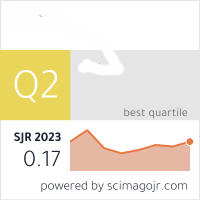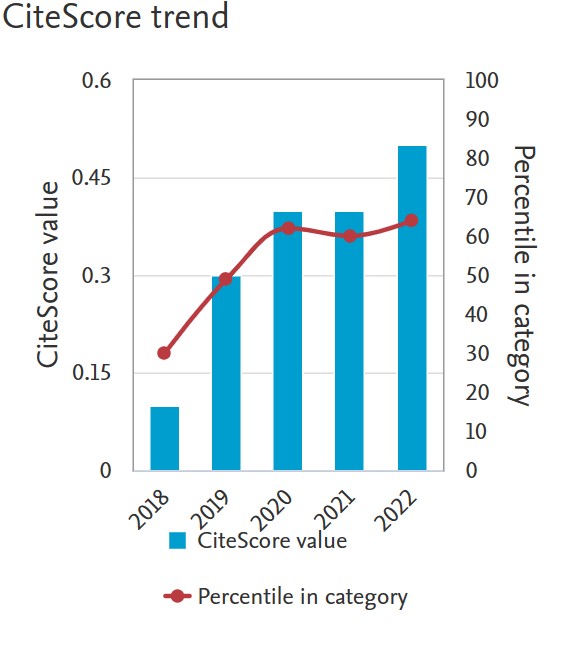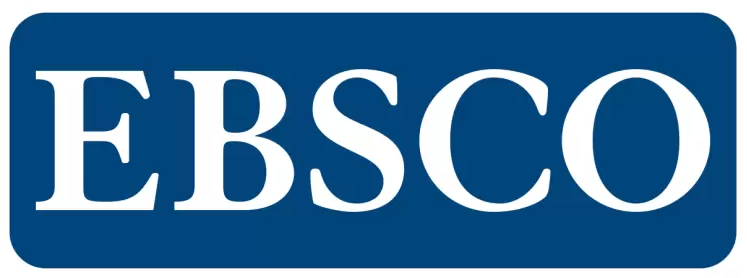Indonesian Smart Card Policy-Based Public Administrative Management In Realizing Education Equality In State Junior High Schools
Keywords:
Public Administration of Indonesia Smart Card Policy, Education EquityAbstract
The background of this research is because there are still students dropping out of school, the distribution of Smart Indonesia Card funds is not on target, and there is a lack of outreach. The purpose of this research is to find out the analysis of Public Administration Management based on the Smart Indonesia Card Policy in Public Middle Schools, provide solutions for future improvement efforts, describe the impact of implementing the Smart Indonesia Card policy in realizing educational equity in Public Middle Schools. Approach qualitative descriptive method of data processing techniques used in this study are observation, interviews, and documentation. Research results from the implementation of the Smart Indonesia Card policy in realizing equity in education at public junior high schools in the planning aspect have not been on target because there are still students who should have received the Indonesia Smart Card but did not receive financial assistance from the Smart Indonesia Card, on the other hand students from families who are categorized as more economically capable can get Indonesia Smart Card funding assistance. Synchronization of student data has not been well integrated. Parents of students sometimes forget to report evidence of taking Indonesian smart card funds.
Downloads
References
Abidin, Said Zainal. 2002. Public Policy.
Jakarta: Pancur Shiva Foundation.
Arifin, Daeng. 2014. Organizational
Management of Personnel and Educational
Leadership. Bandung: Al-Kasyaf.
Hesse, Nogi. 2005. Public Management,
Jakarta: PT Gramedia Widiasarana.
Irianto, Yoyon Bahtiar. 2011. Education
Renewal Policy. Jakarta: PT. Rajagrafindo
Persada.
Mustard, Mohamad. 2014. Education
Management. Jakarta: PT. Rajagrafindo
Persada.
Sanusi, Ahmad. 2015. Value System,
Alternative Faces of Education, Nuance
Publisher: New Sukup Complex No. 23Ujung Berung – Bandung 40619. Tel 022-
Sugiyono, 2013. Quantitative Qualitative
Research Methods and R&D. London:
Alphabet.
Sugiyono, Prof. Dr. 2011. Quantitative,
Qualitative and R&D Research Methods.
Bandung: Alphabet.
Terry, George R, Rue, Leslie Wtcoalu, G.A.
Fundamentals of Management.
Jakarta: Earth Script.
Lecturer Team. 2012. Education Management.
Education administration. Indonesian
education university. Bandung: Alphabet.
YIN, Robert K. 2014. Case Study Design &
Methods. Jakarta: PT. Rajagrafindo
Persada.
Journal
Dimmera, B.E., & Purnasari, E. 2019.
Problems and Solutions to the Smart
Indonesia Program in Realizing Education
Equality. Journal of Management Study
Program.
Herline, Lina. 2020. Management of the
Problem Based Learning Approach in
Improving the Quality of Learning.
Bandung: Nusantara Islamic University.
Rohaeni, N. E., & Saryono, O. 2018.
Implementation of Smart Indonesia
Program (PIP) Policy Through Smart
Indonesia Cards (KIP) in Educational
Equity Efforts. Journal of Education
Management and Administration Review,
(1), 193-204.
Sari, Musdalifah, et al. Implementation of the
Smart Indonesia Card Policy in Efforts to
Equalize Education at MTSN 1
Watampone. Mappesona Journal of Islamic
Education Management volume 3 No 1
February 2021. Tarbiyah Department, MPI
Study Program, State Islamic Institute.
School, the distribution of Smart Indonesia Card
funds is not on target, and there is a lack of
outreach. The purpose of this research is to
find out the analysis of Public Administration
Management based on the Smart Indonesia
Card Policy in State Middle Schools, provide
solutions for future improvement efforts,
describe the impact of the implementation of
the Smart Indonesia Card policy in realizing
educational equity in Public Middle Schools.
Approach qualitative descriptive method of
data processing techniques used in this study
are observation, interviews, and
documentation. Research results from the
implementation of the Smart Indonesia Card
policy in realizing equal distribution of
education in public junior high schools in the
planning aspect have not been on target
because there are still students who should
have received the Smart Indonesia Card but
did not receive financial assistance from the
Smart Indonesia Card, on the other hand
students from families who are categorized as
more economically capable can get funding
assistance Smart Indonesia Card.
Synchronization of student data has not been
well integrated. Parents of students
sometimes forget to report evidence of taking
Indonesian smart card funds.
Keywords: Public Administration of Indonesia
Smart Card Policy, Education Equity.
Sartika, 2018. Implementation of the Smart
Indonesia Card (KIP) in Rompegading
Village. Journal of State Administration
Science. Macassar.
Septiani Astuti, Rini. 2016. Implementation of
the Smart Indonesia Card Policy in Efforts
to Equalize Education in the 2015/2016
Academic Year: Yogyakarta: Yogyakarta
State University.
Suparman, Endang. 2020. Implementation of
Policy Concerning the Smart Indonesia
Program at Salopa 1 Public Junior High
School, Tasikmalaya Regency. YPPT Priatim
School of Administration. Tasikmalaya.
Vikin, Ade Saputri. 2021. Journal of Education
Policy Analysis Spectrum Vol. 10(1),
March 2021: 99-111. Yogyakarta State
University.
Walid, AbdulBasar. 2016. Management of the
Family Hope Program in Increasing
Participation Rates in Elementary and
Secondary Education. Education
Management Thesis. Bandung: Nusantara
Islamic University.
Yulita, Erna. 2020. Reason and Knowledge in
the Koran. PGMI Partner Journal Volume
No 1
Downloads
Published
Issue
Section
License
You are free to:
- Share — copy and redistribute the material in any medium or format for any purpose, even commercially.
- Adapt — remix, transform, and build upon the material for any purpose, even commercially.
- The licensor cannot revoke these freedoms as long as you follow the license terms.
Under the following terms:
- Attribution — You must give appropriate credit , provide a link to the license, and indicate if changes were made . You may do so in any reasonable manner, but not in any way that suggests the licensor endorses you or your use.
- No additional restrictions — You may not apply legal terms or technological measures that legally restrict others from doing anything the license permits.
Notices:
You do not have to comply with the license for elements of the material in the public domain or where your use is permitted by an applicable exception or limitation .
No warranties are given. The license may not give you all of the permissions necessary for your intended use. For example, other rights such as publicity, privacy, or moral rights may limit how you use the material.











